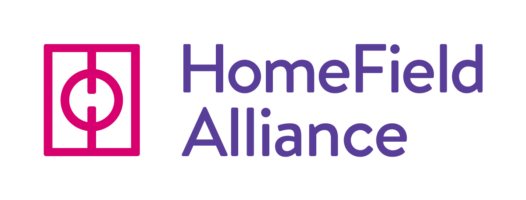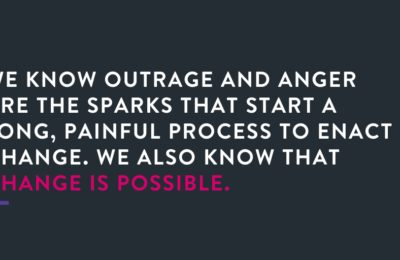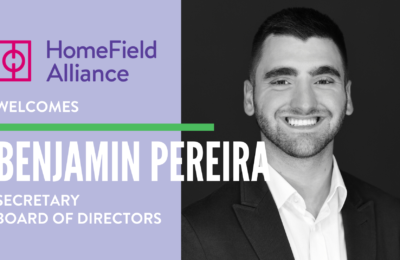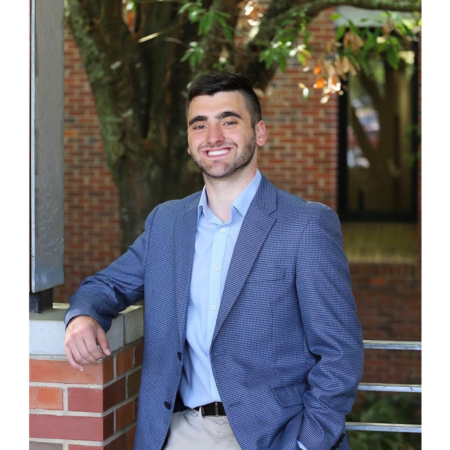
HF Q&A – Ben Pereira
28 January, 2019Share:
HF Q&A – Ben Pereira
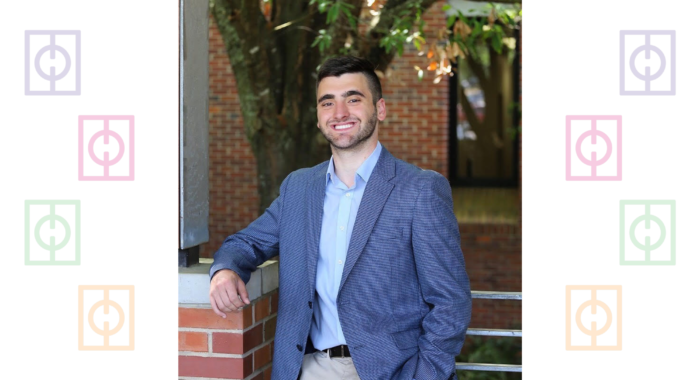
HomeField Alliance’s ongoing content feature lets members and others get to know LGBTQ professionals in sports and entertainment. If you would like to participate, or have a suggestion for someone we should interview, please let us know at info@homefieldalliance.org.
Next up is HomeField Alliance member Ben Pereira, who completed the interview below at the end of his first week on the job at Minor League Baseball. Despite his youth, Ben has accomplished a great deal in a short period of time, including founding the Foundation for Diversity and Inclusion in Sport (FDIS) while a graduate sport management student at Florida State University (as was detailed in this Outsports profile last year).
1) What would you like HFA members to know about you that they couldn’t learn from your LinkedIn profile?
My profile is so polished and professional, and really only shows my sport industry side. I’m an adventurous spirit; I’m excited that I’m now living in the Tampa area and get to explore all the beautiful parts of this region. There’s so much more to life than work. I love to travel; I had the chance to backpack Europe last summer and I’d like to reach all 50 states by 50. Aside from exploring, I love to spend time with family and friends; I grew up with a big family and through the years consistently add more and more friends who now fall under that family category!
2) What is the best aspect of your current role?
Working in Diversity and Inclusion for a league like Minor League Baseball that touches 160 markets across the country is incredibly exciting. D&I work is so important, and sport is such a unique medium to discuss these issues, as it’s one of the last, relatively uncorrupted marketplaces where conversations related to equity are, for the most part, well received and not overly politicized. I’m only a week into this role, but I’m really excited to see what we’re able to accomplish and what kind of change we can bring to baseball. This year we’ll be rolling out MiLB PRIDE on a league-wide basis, which has been the primary responsibility for me in the initial stages of my tenure.
3) What is the biggest challenge you face in that role?
I just started in this position, so I have yet to face too many obstacles, although I’m sure given the field I’m in that not all clubs will be receptive to the efforts our department puts forward. To be direct, the hardest part so far has just been maintaining patience!
4) What impact, if any, has your LGBTQ status had on your career, either positive or negative?
I think my LGBTQ status has had a very positive impact on my career. Ever since I decided to come out last year in an Outsports article, I’ve felt so welcomed by the sport community. I’ve had so many different professionals reach out to me offering a hand and sharing their advice. In fact, I actually connected with HFA founder, Jake Lenz, right after my article was released. If I didn’t embrace who I was fully, I don’t think I’d be where I am today in my career. The acceptance I’ve found in this field is truly a testament to the generations of industry leaders who paved the path for me to be able to start my career, on Day 1, as an out gay male.
5) What is one thing the sports & entertainment industry can do to be more welcoming to LGBTQ employees?
I wish more employers were just more cognizant of some of the issues the LGBTQ community faces in the workplace. While I’ve felt comfortable in my career, and lucky in that sense, there are still so many professionals who I’ve talked to that work in offices that seem to be, whether intentional or not, ignorant to casual phrases that portray homonegativity. Having LGBTQ cultural competency training should be something all employers look to implement. It’s a relatively easy way to be an ally.
6) What advice would you give to LGBTQ sports & entertainment professionals who are early in their careers?
I’m early in my career, and I’m lucky that my status as a member of the LGBTQ community hasn’t had a negative impact on my career. However, I’m also aware that I work for a pretty progressive organization and live in a progressive part of the country. My advice to young LGBTQ sport & entertainment professionals would just to be true to yourself and live authentically. As nervous as I was that coming out would have a negative impact, it’s paid dividends for me professionally, and certainly personally. It’s a relief to not have to constantly check a piece of my identity at the door.
7) Who do you look up to? (It doesn’t have to be someone you know.)
I’ll give two responses for this one, one inside of sport, and one outside of sport. In sport, there is no leader I look up to more than Adam Silver. The forward-thinking culture he’s established with the NBA on a multitude of avenues, including Diversity and Inclusion, is the reason why we’ve seen the NBA’s consistent growth, particularly among younger demographics. The league is intentional with its diversity and inclusion practices, and the way it has handled athlete activism deserves applause. Silver is a tenacious and progressive leader and, in my opinion, the best commissioner in sports today.
Outside of sport, I’ve always looked up to the late Nelson Mandela. His teachings are timeless, and his selfless resistance during the apartheid helped tackle institutionalized racism and fostered racial reconciliation. Mandela is an icon for democracy and social justice, and is deeply respected worldwide, across political spectrums. His ability to unify people in his cause in a peaceful and respectful manner is deeply admirable. I also respect the vision he held for sport, which he echoed in his famous speech during the 1995 Rugby World Cup: “Sport has the power to change the world, it has the power to inspire. It has the power to unite people in a way that little else does. It speaks to youth in a language they understand. Sport can create hope where once there was only despair. It is more powerful than government in breaking down racial barriers.”
8) What is the best piece of career advice you ever received?
One of my mentors, Laurie Priest, who served as an out athletic director for Mount Holyoke College for 20+ years, was instrumental in helping me adjust to coming out in the sport industry. Her advice for me that inspired me to come out was that regardless of the feedback I received it’d be worthwhile. If an organization chose not to hire me because of my identity status then it wasn’t a place, culture-wise, that I’d want to work in anyway. It helped me rationalize the scale of the decision; what did I have to lose? A potential workplace where I’d be miserable and uncomfortable?
Before she took her job at Mount Holyoke, she ensured that they’d be willing to take her as her full self, with her wife, and they welcomed them both with open arms. And based on her success there, I’m sure they’re glad they did!
9) What is your favorite thing to do to decompress away from work?
If I’m ever stressed, and this is a perk of growing up by the ocean and now living near some of the most beautiful beaches in the country, I go to the beach. It’s a place of solace for me. I turn off my phone, and just try to stay present and decompress from whatever stresses may be on my mind at the time.
10) What are you currently reading?
I’m currently reading Educated by Tara Westover, and A Problem from Hell: America in the Age of Genocide by Samantha Power. I recommend them both!
